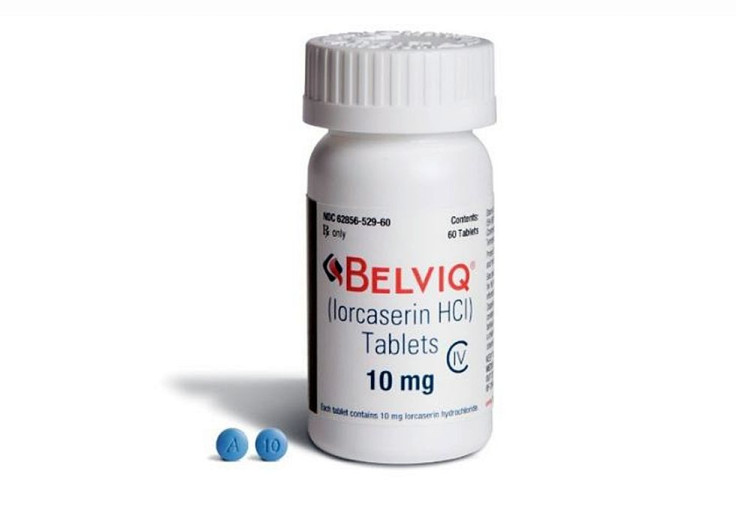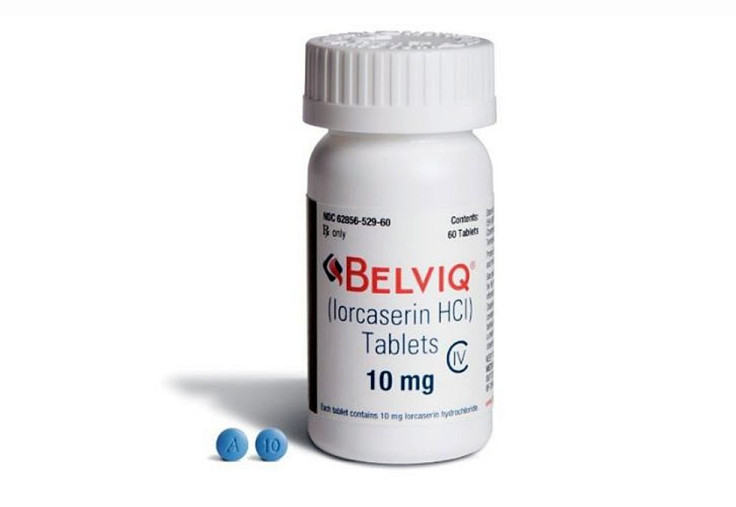Weight Loss Drug Belviq May Increase Cancer Risk, FDA Reports

Nine years after it first voted to disapprove the weight loss drug Belviq (lorcaserin) due to findings of tumors in rats, the U.S. Food and Drug Administration (FDA) warned the drug might be associated with an increased risk of cancer.
The FDA was led to make the warning after a clinical trial assessing the safety of Belviq and Belviq XR convinced it to make the public aware of this potential cancer risk. It said the cause of the cancer remains uncertain and it can't conclude Belviq contributes to the cancer risk.
"However, we wanted to make the public aware of this potential risk," the FDA said. "We are continuing to evaluate the clinical trial results and will communicate our final conclusions and recommendations when we have completed our review."
The FDA recommended health care professionals should consider if the benefits of taking lorcaserin exceed the potential risks for a patient. It also added patients currently taking Belviq should talk to their doctors about the potential increased risk of cancer.
Belviq is a prescription oral medication to help weight loss in adults that are obese or are overweight and have weight-related medical problems, as per the FDA. It's taken twice a day, while Belviq XR is an extended-release once-daily tablet. Belviq was once praised as a "holy grail" in the fight against obesity after a 2018 study yielded promising results.
Developed by Arena Pharmaceuticals, Belviq works by increasing feelings of fullness so that a patient eats less food. In January 2017, Arena announced the sale of Belviq to its Japanese partner, Eisai Co., Ltd., which has since manufactured and marketed the drug.
On Sept. 16, 2010, an FDA advisory panel voted 9-5 against approving Belviq based on concerns over both efficacy and safety. Especially concerning to the FDA were findings of tumors in rats. One month later, the FDA decided not to approve Belviq because its cancer promoting properties couldn't be ruled out and also because the drug's weight loss efficacy was seen as marginal. Belviq, however, was approved by the FDA in 2012 and made available by prescription in 2013.
The FDA said when it approved Belviq on 2012, it required Arena to conduct a randomized, double-blind, placebo-controlled clinical trial to evaluate the risk of heart-related problems. The trial, which involved some 12,000 participants over five years, revealed more patients taking Belviq were diagnosed with cancer compared to patients taking a placebo.
"Our evaluation of this potential signal is ongoing, and at this time it is uncertain if lorcaserin increases the risk of cancer," the FDA noted.
Eisai responded to the FDA's announcement in a written statement issued Wednesday.
"Patient safety is Eisai's priority and we will continue to work closely with the FDA to evaluate the clinical trial results," Eisai said. "We recommend patients speak directly with their health care professional in order to make the best decision about their medical treatment. As indicated in the FDA's communication, at this time, the FDA and Eisai cannot conclude that BELVIQ increases the risk of cancer."

Published by Medicaldaily.com



























